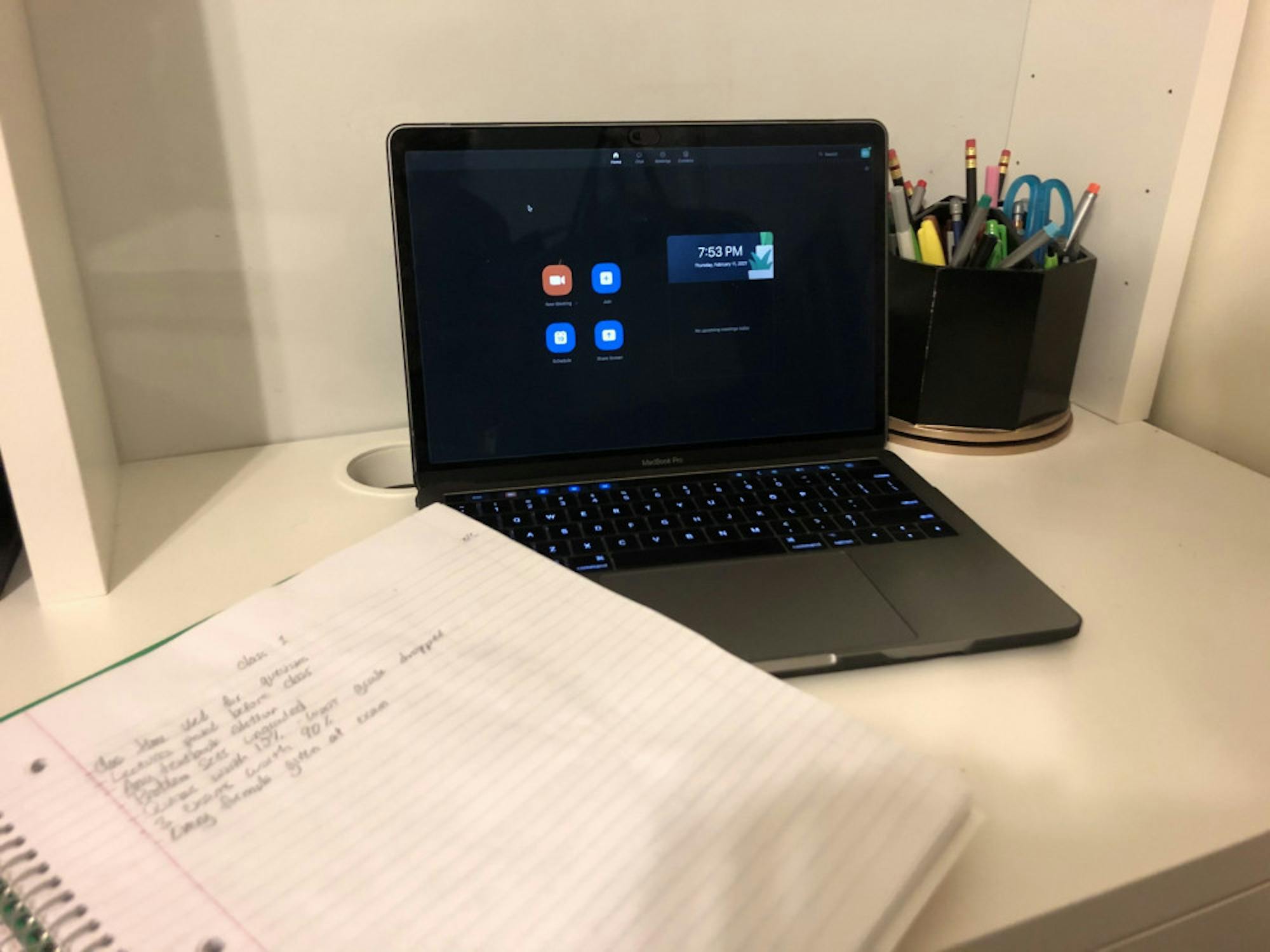Increased national scrutiny has been cast on the growing influence of for-profit companies on colleges and universities, and Tufts is one such university that outsources programs and services.
Tufts has long enlisted the help of private companies, including janitorial services and the Tufts bookstore, which is run by Barnes & Noble, often with the promise of efficiency and reducing costs. However, as Tufts expands its partnerships with private, for-profit companies to assist with its online degree offerings, concern has grown as the gap between a Tufts education and a for-profit education narrows, according to anarticle published by the Washington Post last month.
At the center of that concern has been Tufts’ relationship with online program management providers, including Noodle and 2U. According to itswebsite, Noodle "manage[s] the complex flow of data from schools and systems into a secure, cloud-based data warehouse (n:core)." 2U is focused on supporting universities with the power of education technology, according to itswebsite.
Both programs have been essential in assisting faculty and administrators to launch Tufts’ new online degree offerings.
Aviva Must, chair of public health and community medicine, said 2U has been used to launch two online master's programs at the Tufts University School of Medicine. She has collaborated with 2U to implement these programs.
“The internal resources and time we would have needed to host and recruit for two fully online programs would have been significant, so working with an online program manager allowed us to meet the demand for flexibility and new programs in a more efficient and timely manner,” Must wrote in an email to the Daily.
Must further explained the nature of Tufts’ relationship with 2U.
“[2U has] no role in admissions, content, or instruction in the program," Must said. "They handle enrollment marketing for the program — which uses digital advertisements to target potential candidates, but they make no decisions regarding who is admitted.”
Not much more has been made public about the relationship between Tufts and the online program management providers it collaborates with — including how the for-profit online program management providers make money off of the programs. Executive Director of Public Relations Patrick Collins said that contract details between Tufts and its service providers are kept confidential.
“Generally, [online program management providers] earn money through a revenue-sharing model in which they receive payment for assisting us with the distance learning platforms and video recordings, marketing to prospective students, and providing other services,” Collins wrote in an email to the Daily.
Noodle is another online program management provider that partnered with Tufts this past year to launch online computer science and data science graduate programs. Despite Tufts' inability to share its agreements with the online program management providers it contracts, Noodlequotes monthly fees between $12,000 and $22,000 for each program it manages, with an additional $88 per credit hour for each student enrolled in the program.
Although expensive, Tufts faculty and administrators agree that the benefit provided by online program management providers is clear. Bhaskar Chakravorti, dean of global business at the Fletcher School,explained that he views the partnership as a natural one.
“[It has] been a classic partnership of two different organizations that bring different capabilities to the table … what Tufts and Fletcher bring is knowledge, credibility and an academic environment that is conducive to learning," Chakravorti said. "What [2U] brought to the table … [is] technology.”
Marty Allen, associate teaching professor and director of online programs in the Department of Computer Science, echoed similar benefits brought to the department and program.
“The main thing Noodle brings to the table is experience," Allen wrote in an email to the Daily. "Since they've worked with a number of online programs, past and present, they are invaluable partners for me … it's great to be able to get advice from people who have been doing online education often much longer than I have."
Rebecca Petersen, program director of the online Master of Arts in Teaching at Tufts, believes 2U provides experience and marketing expertise.
“When you work with an [online program management provider] ideally you benefit from their expertise and experience, avoiding some common trial and error that can happen if you were to [do] it alone," Petersen wrote in an email to the Daily. "By using [online program management providers’] marketing expertise, Tufts may be able to attract students who have not thought about applying to a [Tufts] program.”
A principal concern of the presence of for-profit companies in non-profit education has been their influence on the academic and admissions components of programs. Allen explained that admissions and curricular decisions are still left to faculty.
“On the academic side, everything is handled as it always has been," Allen said. "All admission decisions are made by the members of the CS faculty, including myself."
Chakravorti said the partnerships with online program management providers help Tufts accomplish its mission of sharing and creating knowledge with the world.
“[The model] originated with the intent of taking the university to the student and meeting the student where the student is," Chakravorti said. "Now, with the pandemic having essentially reset the way we do things, we realized that many of those capabilities were enormously helpful in managing the virtual campus that we did over 2020 and we'll continue to do over 2021. This is going to make a difference to the way we think about the role of technology and our interfacing with students on a day-to-day basis.”






